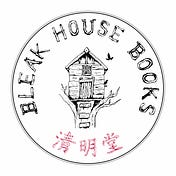
Official Newsletter for Bleak House Books
A Substack about books and bookselling from an indie bookshop in Western New York.
By subscribing, I agree to Substack’s Terms of Use and acknowledge its Information Collection Notice and Privacy Policy

A Substack about books and bookselling from an indie bookshop in Western New York.